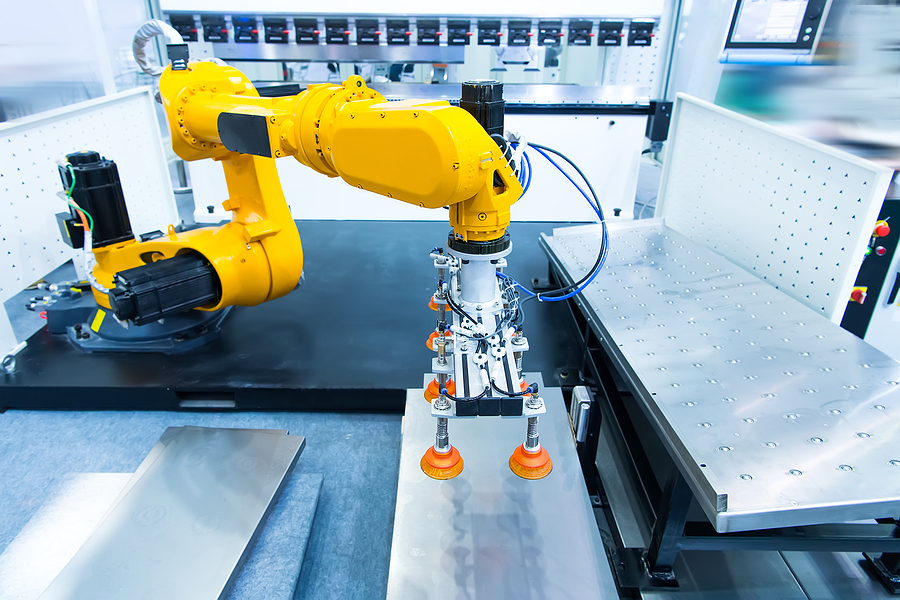Jobs
NH Outpacing Nation in Advanced Manufacturing Jobs – NH Journal

The quality and strength of New Hampshire’s business climate keeps climbing higher, and this time it’s the Granite State’s $8 billion advanced manufacturing sector that’s leading the way.
According to a new Department of Business and Economic Affairs (BEA) report, New Hampshire’s advanced manufacturing — with its 42,000-plus jobs and 1,100-plus businesses — is outpacing both “regional and national trends.”
Specifically, the BEA report indicates New Hampshire’s share of advanced manufacturing jobs is 60 percent higher than the national average.
BEA Commissioner Taylor Caswell said in a statement the report shows the state’s record of “innovative and modern manufacturing” has translated to New Hampshire claiming its place “on the cutting edge.”
“The report gives BEA, industry and institutional partners, and business leaders further insight into the opportunities, as well as challenges, facing the industry and defines near and long-term steps that can be taken to help keep the industry pushing forward and punching above its weight,” Caswell added.
The new data marks yet another high point for the state under GOP Gov. Chris Sununu. The four-term governor is being succeeded in Concord by Republican former U.S. Sen. Kelly Ayotte. Earlier this month, Ayotte trounced Democratic former Manchester Mayor Joyce Craig by roughly 10 points to keep the Corner Office in GOP control.
One prevailing theme in Ayotte’s campaign was a promise to keep New Hampshire “on the Sununu path.”
According to a BEA release that accompanied the report’s publication, approximately “13 of the top 20 occupations in the industry require only a high school diploma or the equivalent for entry.”
According to the department, the “Advanced Manufacturing Industry Cluster” includes “aerospace and defense; fabricated metal product manufacturing; computer, communication, and electronics manufacturing; machinery manufacturing; electrical equipment, appliance, and component manufacturing; and transportation equipment manufacturing.”
The BEA department was launched in 2017 under Sununu. According to Caswell, the governor was looking for new ways to bring about economic development in New Hampshire.
“We had previously been under what was called the Department of Resource and Economic Development, which had one of the more unfortunate acronyms in the history of New Hampshire state government, DRED,” Caswell told NH Business Review last month.
“We took what was the tourism and the economic development pieces and combined them into a single department. We turned it into something that takes economy, that is not just simply business recruitment and tourism marketing,” Caswell added. “It has to be something that has an integrated purpose, a purpose of helping to expand the economy of the state, to find new segments, new employers, to match that with new workforce — and increasingly now to deal with the housing issue that comes with that.”
New Hampshire businesses that fall under the advanced manufacturing umbrella also include those producing medical devices, semiconductors, aircraft engine parts, and precision optics.
“From local machine shops to defense contractors and high-tech devices created in clean rooms, advanced manufacturing touches every corner of the New Hampshire economy, and it necessitates the collaboration of a variety of partners and stakeholders,” the release states.
Andrea Hechavarria, president and chief executive officer of New Hampshire Life Sciences — the statewide life sciences association — said in a statement that the BEA report “reinforces what the life sciences community has known for a long time, that our manufacturing industry is vibrant and a leader in the region.
“The success of the life sciences industry is directly linked to the strength of our advanced manufacturing sector, and NH Life Sciences will continue to engage and work with leaders across the state to ensure we are doing everything possible to lean in and further develop these two high-growth sectors,” Hechavarria added.
Michael Skelton, president and chief executive officer of the Business and Industry Association (BIA), New Hampshire’s state affiliate of the National Association of Manufacturers, stated that the business conditions developed under BEA “support the growth of manufacturing” and will “deliver new opportunities for Granite Staters.”
“Manufacturing drives productivity and innovation and stimulates more economic activity than any other sector as the multiplier effect from turning raw materials or parts into finished goods is unrivaled,” he added. “BIA members are deploying cutting-edge technologies in advanced manufacturing and next-generation operations in the burgeoning bio-fabrication sector.”








